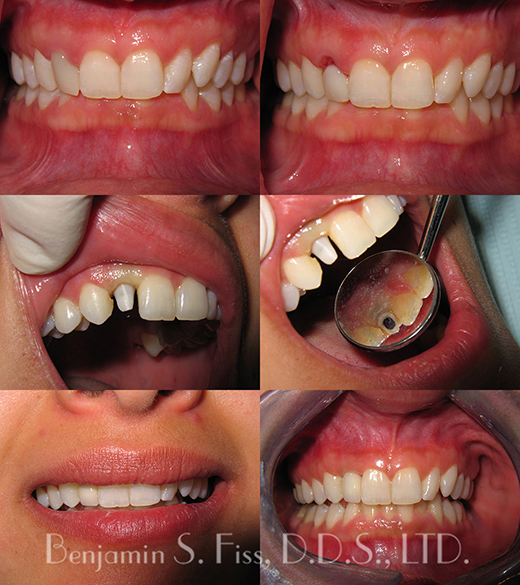Dental Sense Can Be Fun For Anyone
Table of ContentsA Biased View of Dental SenseEverything about Dental SenseNot known Details About Dental Sense Dental Sense Things To Know Before You Buy
are clinical devices operatively implanted right into the jaw to recover a person's capability to eat or their look. They offer support for man-made (fake) teeth, such as crowns, bridges, or dentures. When a tooth is shed as a result of injury or condition, a person can experience issues such as fast bone loss, faulty speech, or adjustments to eating patterns that result in discomfort.Oral implant systems include an oral implant body and oral implant joint and might additionally include an abutment fixation screw. Root canal procedure. The dental implant body is surgically inserted in the jawbone in location of the tooth's origin. The dental implant joint is generally connected to the dental implant body by the abutment fixation screw and expands with gums into the mouth to sustain the attached man-made teeth
(https://triberr.com/dentalsense1)Structure of The Dental Implant System selecting dental implants, talk with your oral provider about the possible advantages and dangers, and whether you are a prospect for the treatment. Things to consider: Your general health and wellness is a crucial consider determining whether you are a good prospect for oral implants, for how long it will take to heal, and how much time the dental implant might remain in place.
Smoking cigarettes may affect the recovery process and lower the lasting success of the dental implant. The recovery process for the implant body may take several months or longer, during which time you normally have a temporary abutment instead of the tooth. the oral implant procedure: Carefully follow the dental health directions offered to you by your oral service provider.
The 2-Minute Rule for Dental Sense
Implant failing can lead to the demand for another surgery to take care of or replace the implant system. Recovers the ability to chew Recovers aesthetic look Assists keep the jawbone from diminishing due to bone loss Maintains the wellness of the surrounding bone and periodontals Helps maintain surrounding (close-by) teeth secure Enhances high quality of life Damages to surrounding all-natural teeth throughout dental implant placement Injury to the surrounding tissues throughout surgical procedure, such as sinus perforation Injury throughout surgery (for example, fracture of surrounding jawbone) Poor function, such as really feeling like the teeth do not bite with each other typically A sensation that the tooth hangs or turning in position arising from a joint screw loosening up Implant body failing (looseness of the dental implant body) due to systemic infection, which may be more probable in individuals with unchecked diabetics issues because of neighborhood infection in bone and gums sustaining blog the implant body due to postponed recovery, which may be most likely in individuals who smoke Difficulty cleansing the gums around the implant, leading to bad oral hygiene Untreated periodontal disease Post-surgical feeling numb because of nerve impingement or damage Always alert health care companies and imaging professionals that you have oral implants prior to any kind of magnetic vibration imaging (MRI) or x-ray treatments.
FDA is not conscious of any kind of unfavorable events reported for MRI or x-ray treatments with dental implants. Dental implants systems are commonly constructed from products that follow global consensus standards of the International Organization for Standardization (ISO) or ASTM International. These criteria have information of what makes a safe product.

An oral implant is a structure that replaces a missing tooth. With screw-like devices, the doctor inserts a dental implant into the jawbone, and it functions as an anchor for a fabricated tooth, called a crown. A device called an abutment links the artificial tooth to the dental implant. The crown is tailor-made to fit the individual's mouth and match the shade of their teeth.
The Single Strategy To Use For Dental Sense
Some individuals are not qualified for dental implant surgical procedure. It is for oral specialists to operate individuals with: severe illnessuncontrollable metabolic diseasebone or soft tissue illness or infectionIf these concerns are resolved, an individual can have the surgical procedure. In, oral specialists abstain from operating on individuals with: If people with any one of the above undertake oral implant surgical procedure, there is a higher risk of the implant stopping working.

Oral dental implant surgery is a customized procedure. Provide you time to heal. Attach the article and last crown, bridge or denture.
Next off, your doctor will carefully place the oral implant right into your jaw. If your dental implant is near the front of your mouth, your dental expert will certainly make a short-term tooth for you to wear till you heal.
Dental Sense for Beginners
Throughout the healing stage, your jawbone should fuse to the dental implant. This process can take anywhere from three to 9 months.
Once your implant heals, your dental expert can affix the joint (little connector message) and your final repair (crown, bridge or denture). This generally takes about one hour to complete and might call for a second small surgical treatment. You should not feel any kind of discomfort throughout your oral implant procedure due to the fact that your provider will certainly use medication to numb your gum tissues.